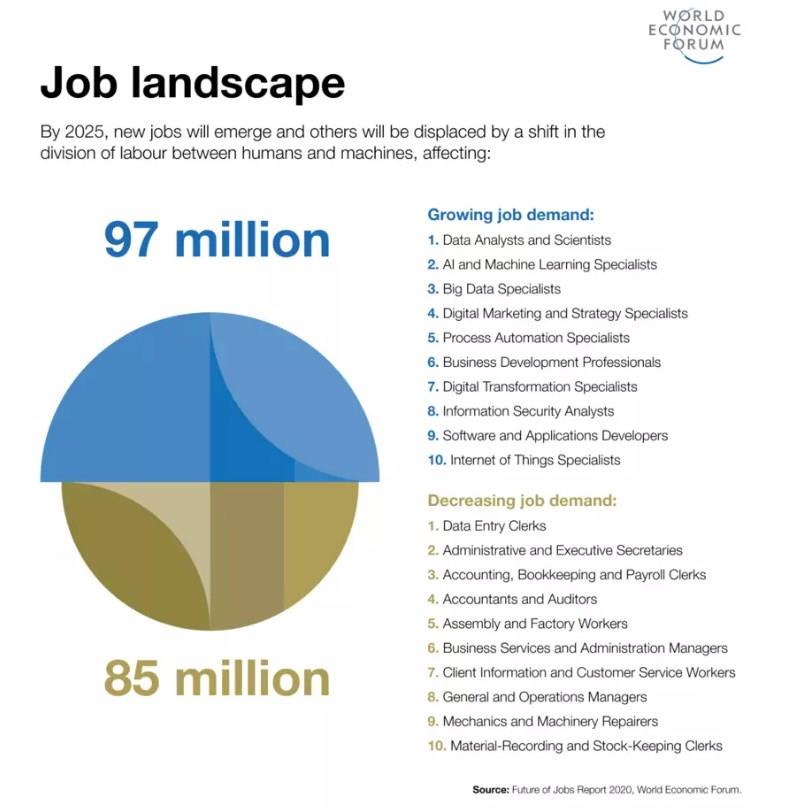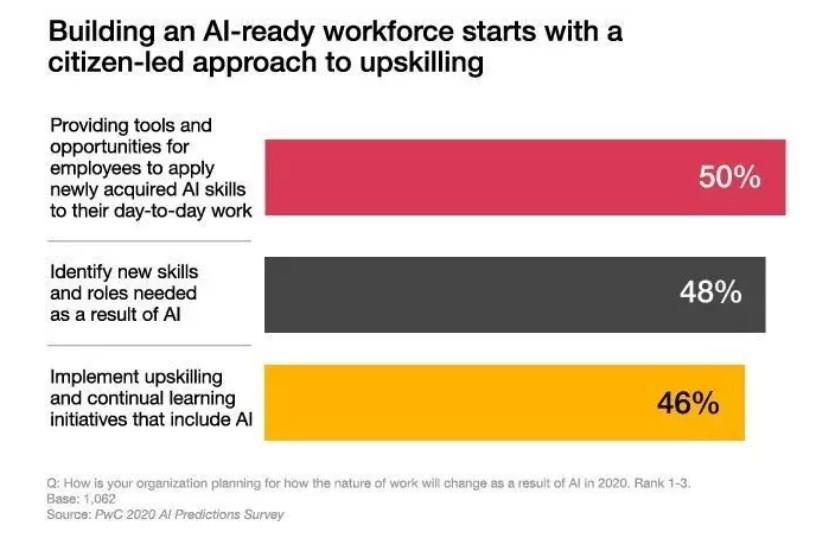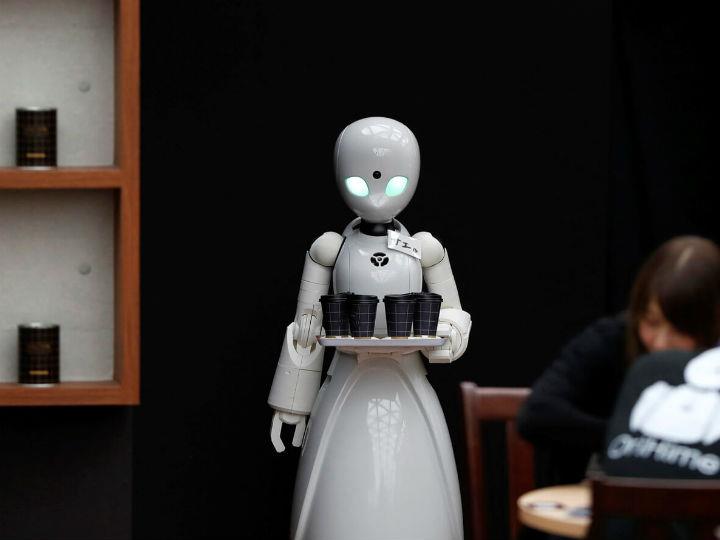by Mohamed Kande and Murat Sonmez*
The COVID-19 pandemic has accelerated technological advances and the automation of many routine tasks – from contactless cashiers to robots delivering packages. In this environment, many are concerned that artificial intelligence (AI) will drive significant automation and destroy jobs in the coming decades.
Just a few decades ago, the internet created similar concerns as it grew. Despite skepticism, the technology created millions of jobs and now comprises 10% of US GDP. Today, AI is poised to create even greater growth in the US and global economies. Sixty-three percent of CEOs believe AI will have a larger impact than the internet, according to PwC’s Annual Global CEO Survey.
While Fourth Industrial Revolution technologies driven by AI will continue to fundamentally change the world and the way we work and live, AI may not lead to massive unemployment. Instead, AI technology will create more jobs than it automates.
These newly created jobs will require new skills and necessitate significant investment in upskilling and reskilling young people and adults. But businesses and governments can – and must – work together to address this transition and embrace the positive societal benefits of AI.

AI and job growth
By 2030, AI will lead to an estimated $15.7 trillion, or 26% increase, in global GDP, based on PwC’s Global Artificial Intelligence Study. (To put this figure in context, it’s greater than both China and India’s current combined GDP.) Increased productivity will contribute to approximately 40% of this increase while consumption will drive 60% of GDP growth.
While AI will automate some jobs, a PwC AI study has found that “any job losses from automation are likely to be broadly offset in the long run by new jobs created as a result of the larger and wealthier economy made possible by these new technologies.” Furthermore, PwC does not forecast large-scale technological unemployment as a result of automation.
In its “Future of Jobs Report 2020,” the World Economic Forum estimates that 85 million jobs will be displaced while 97 million new jobs will be created across 26 countries by 2025.
AI will automate many repetitive and sometimes dangerous tasks like data entry and assembly line manufacturing. The technology will also change the nature of work for many other jobs, allowing workers to focus on higher-value and higher-touch tasks that often require interpersonal interactions. These newly enhanced jobs will create benefits for both businesses and individuals who will have more time to be creative, strategic, and entrepreneurial.
The impact and benefits of AI will likely not be shared equally. Businesses and governments must work together to ensure that as many people as possible can benefit and the digital divide does not increase and exacerbate existing inequalities.
Reskilling and upskilling
Embracing the consumption and productivity benefits of AI will require businesses and governments to collaborate on massive reskilling and upskilling initiatives to help employees retrain and prepare for new and future jobs.
In the next few years, 3% of jobs will be potentially automated by AI, according to PwC’s report “Will robots really steal our jobs?” Increased digitization resulting from COVID-19 may accelerate this trend. By the mid-2030s, as AI advances and becomes more autonomous, 30% of jobs and 44% of workers with low levels of education will be at risk of automation.
In the next five years, half of all workers will require some upskilling or reskilling to prepare for changing and new jobs, according to the World Economic Forum. The rapid pace of technological change requires new models for training that prepare employees for an AI-based future. True upskilling requires a citizen-led approach focused on applying new knowledge to develop an AI-ready mindset. Employers should view upskilling and reskilling as an investment in the future of their organization, not an expense.

Companies should also collaborate with governments, educators, and nonprofit organizations on multi-sector upskilling and reskilling initiatives like Generation Unlimited and the Reskilling Revolution. Training benefits more than just employees and their employers, but also the economy and society.
Youth around the world are vulnerable to the skills gap and unemployment, and particularly in need of upskilling and reskilling. Generation Unlimited is a multi-sector partnership that aims to help the 1.8 billion young people around the world transition from school to work by 2030. To support this initiative, PwC is working with UNICEF and the World Economic Forum to prepare youth for the future.
Investing in adults already in the workforce is also crucial. PwC’s New World. New Skills program began with upskilling the firm’s employees and is now being shared outside the company to help millions of adults prepare for their future careers.
In January, the World Economic Forum launched the Reskilling Revolution, a public-private initiative designed to aggregate government and businesses’ efforts and share best practices. The initiative aims to train and futureproof one billion workers by 2030.
At the national level, public-private partnerships like Luxembourg’s Digital Skills Bridge project have successfully brought together government agencies, trade unions, businesses (including PwC), and educators to help train and retrain job seekers and current employees.
And finally, companies should invest in developing their employees’ soft skills that AI cannot replicate. In this changing world, the value of creativity, leadership, and emotional intelligence will likely only increase, and leveraging these qualities to create strong governance and organizational cultures to manage AI is critical.
While some have a dystopian view of the future, the reality is that AI’s positive social impact will likely outweigh its consequences. Only through investment in high-quality, holistic education and upskilling opportunities paired with multi-sector initiatives can we prepare society and ourselves for this future and embrace the benefits of AI.
*Vice Chair and Leader - US and Global Advisory, PwC and Managing Director, World Economic Forum
**first published in: www.weforum.org




 By: N. Peter Kramer
By: N. Peter Kramer
